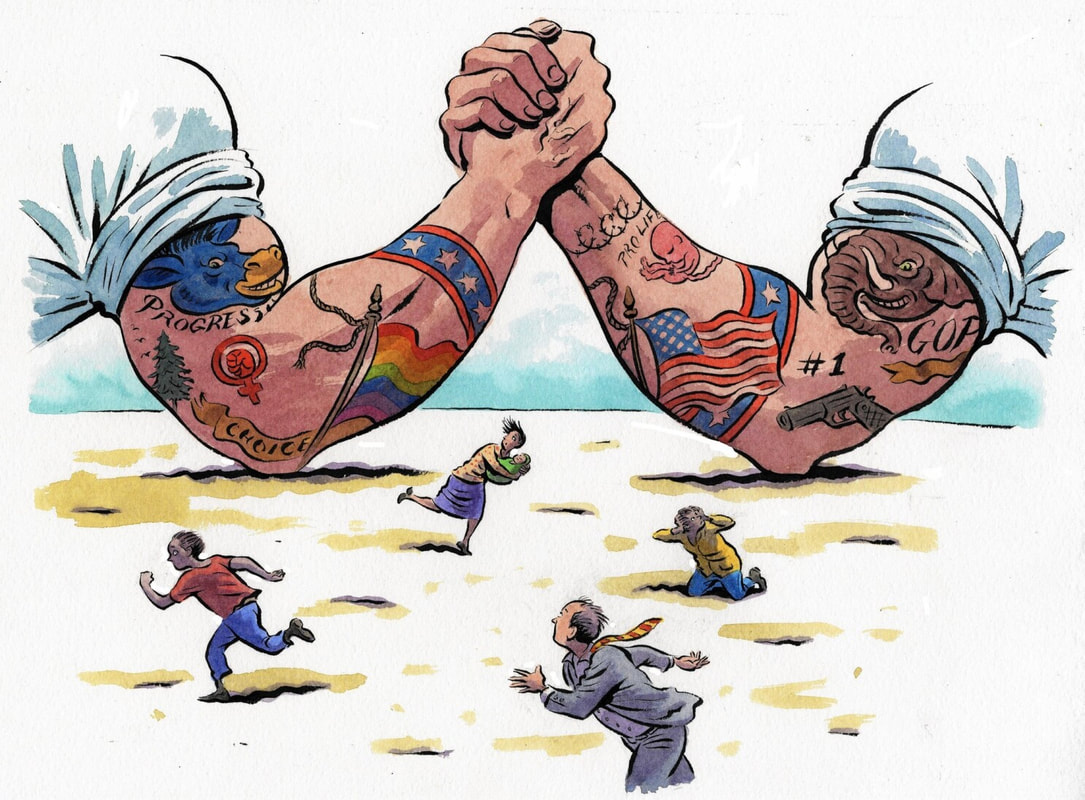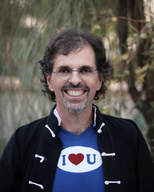|
Image courtesy of the Reformed Journal blog
As a problem-solver, I want to apply my skills and training to some of the greatest challenges that face our society. To start 2023, here is my take on America's current culture wars and what we can do to make things better: Every day on social media, Americans are doing battle. Often, we get sucked into these “culture wars” that are raging everywhere we turn. If you have posted an online comment regarding some key social or political issue, you have probably experienced it firsthand. Within seconds, a stranger may ridicule and hurl insults at you for having the audacity to express an opinion. Just about anything can be fodder for these conflicts: M&Ms, gas stoves, Mister Potato Head, vaccines, and even math. What is behind the culture wars pitting Americans against one another? Like any other social conflict, this one is complex and multidimensional. But at its core lies a struggle between two ways of knowing: “street” and “elite.” First, let’s start with the elite way of knowing. This includes higher education, science, medicine, book knowledge, and the expertise of those who have benefited from such knowledge, including the mainstream media, public servants, librarians, educators, and health-care professionals. In 2010, Time magazine cited the mistrust of elites as one of the major trends that would unfold in the next decade. This prediction turned out to be more accurate and far-reaching than most of us realized. Such mistrust fueled the political rise of Donald Trump and other politicians who were mostly elites disguised as populists. After all, Trump is a billionaire real-estate developer and TV star born to wealth, educated at Wharton and residing in penthouses and golf resorts. His 2016 presidential campaign succeeded by playing on the fears and mistrust shared by many Americans, promoting suspicion of the “deep state” and “lamestream media.” In fairness, such suspicion is often merited. The elites that populists tend to rail against include those who run failing institutions like the federal government, corporations, churches and universities. The failure of these institutions can be attributed to basic corruption and short-sightedness. What has the elite way of knowing done for most Americans? While the elites enjoy unparalleled luxury, a growing number of Americans face unemployment, homelessness, gun violence, addiction, chronic illness, and despair. This disparity lies at the heart of the culture wars. We are now seeing a backlash against the elite way of knowing, which includes a rejection of “woke-ism.” To be woke means to be alert to certain social and cultural issues, such as racism, homophobia, climate change, and reproductive rights. Woke movements like Me Too and Black Lives Matter have provoked hostility and resistance for at least two reasons: First, being woke is viewed as a privilege afforded only to the elite. People who are aware of broader social issues tend to be college educated professionals who read publications like the New York Times, who tend to tune into PBS or NPR, and who trust science and the expertise of trained professionals. The second reason is the perceived militancy and fervor with which the self-declared woke population seeks to impose its views on everyone else. Examples of this include vaccination mandates and cancel culture. Meanwhile, the street way of knowing questions and rejects most elite sources of information. Those who favor this way of knowing are more likely to rely on people they know and trust for their information, including friends and family, certain podcasters and politicians, and social media sources. They may label someone who cites a journal article or mainstream media outlet in an online discussion as “sheeple” or “libtards,” questioning the intelligence and judgment of those who trust and accept the validity of certain elite information sources. We need to understand the populations that choose each way of knowing and the reasons for their choices. Regardless of our preferred way of knowing, most of us tend to be tribal, paying attention to what those closest to us have to say and being more suspicious of outsiders. But whatever assumptions we make about one another based on differences in our ways of knowing may lead us to accept false or misleading stereotypes. As someone who prefers elite information sources—including scientific data, meta-analyses, and expert opinions—I tend to think of those who choose street over elite ways of knowing as mostly poor, white, male, Christian, rural, conservative, and relatively uneducated. Yet, among my own acquaintances are a number of people who do not fit that mold. Several of the anti-vaxxers and Q-Anon supporters I know are well-educated, middle-class, intelligent, female, liberal, non-Christian, urban, and people of color. What I see as a common thread among them is a total mistrust of a system that appears to favor the elites in every way, including a government of, by, and for the wealthy and privileged few. That mistrust begins with sources of knowledge. In recent years, we have seen all of the following called into question: classrooms, textbooks, media outlets, government agencies, scientists, public-health experts, school boards, and libraries. Challenging the validity of these sources is not necessarily a bad thing. The problem lies in how they are replaced. There is no substitute for first-hand knowledge. And yet, given that none of us can be everywhere at once, we must have reliable sources of third-hand information. If all mainstream media are labeled as “fake news,” that creates an opening for even more dubious and morally compromised sources to take hold. Alex Jones’ InfoWars website is a perfect example. Jones has made a fortune pushing unfounded conspiracy theories (e.g. that the Sandy Hook shooting was a false-flag operation) and questionable products like dietary supplements. The irony of this situation is that we live in an age of unprecedented access to information combined with unprecedented mistrust of our information sources and channels. You can choose to reject certain ways of knowing as corrupt and malicious, but nobody can reject ALL information sources because what we do depends on what we know. Without quality information at our disposal, we become susceptible to a form of paralysis in which we fail to act because we have no idea which way to go. This is like trying to fly a plane without functioning navigation equipment or ground control. We need sources of information that are impeccable and beyond reproach. These sources must combine the best of both worlds: street and elite. They cannot be susceptible to the current tribalism that leads us to dismiss and demonize those who think differently than we do. Whatever opinions and attitudes each of us chooses to adopt, wouldn’t it be great to know that our views are based on a solid footing of real facts and unbiased reporting? Here is how I would go about creating such an information source:
This is just a start. Let me know what you think. I welcome your comments, questions, and ideas.
1 Comment
|
I want to hear from you! Please share your questions and comments. And sign up for my newsletter, where I will pass along the insights, ideas, and inspiration that come my way.
Contact me:Archives
November 2023
|


 RSS Feed
RSS Feed
